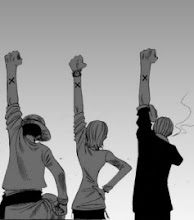
After the fall of Rome the 600’s A.D., came a period known to us as the "dark ages." Much political turmoil – no reliable political structure .The Church was the only stable "government" .The church exerted increasing influence. In the 4th Century, the Bishop of Rome, claiming to be the successor to St. Peter, established supremacy in church matters and in secular concerns.
Feudalism – the manor was the chief non-church political entity.
The manor (large estate), headed by a nobleman, had absolute authority over the serfs, (peasants) who worked the land. Lords of manors were vassals, or subjects, of a king. The king’s knights protected the lords and their land. Serfs (servants) owed allegiance to their lord. There are many church edicts against mimi, histriones, ioculatores – terms for secular performers.
Little is known about the theatre between 600-1000 A.D.
There are references to actors (histriones), jugglers, rope dances in nomadic tribes, remnants of Roman mimes, popular pagan festivals and rites. Teutonic minstrels or troubadours ( scops [pronounced "shope] ) became the primary preserver of tribal histories, but the Teutonic tribes converted to Christianity after the 7th or 8th century, and the scops were denounced, branded as bad as mimes. But there was little written drama; none that survives, and almost no other surviving references to it.
Hrosvitha of Gandersheim, a nun, wrote religious plays based on Terence's plays, but they were
probably "closet dramas."
Also Christian ceremonies, where the theatre seems to have been "reborn.". Between 925 and 975, drama becomes re-introduced into the church services. Theatre was "reborn" within the very institution that helped to shut it down. Perhaps the church had little choice – it couldn't’t stop the pagan rites – too popular – so many aspects of pagan rites found their way into Christian ceremonies. (Christmas the birth of Christ, not celebrated in December till the 4th century, to take advantage of the winter festivals; Easter supplanted the spring festivals).
In the 12th century, the Crusades helped bring other cultures to Europe (or, to be more accurate, Europeans took from other cultures and brought them to Europe).
"Liturgical drama" – within the church liturgy, the service
Other religious dramas extended outside the church, in the vernacular


Great start!
ReplyDelete